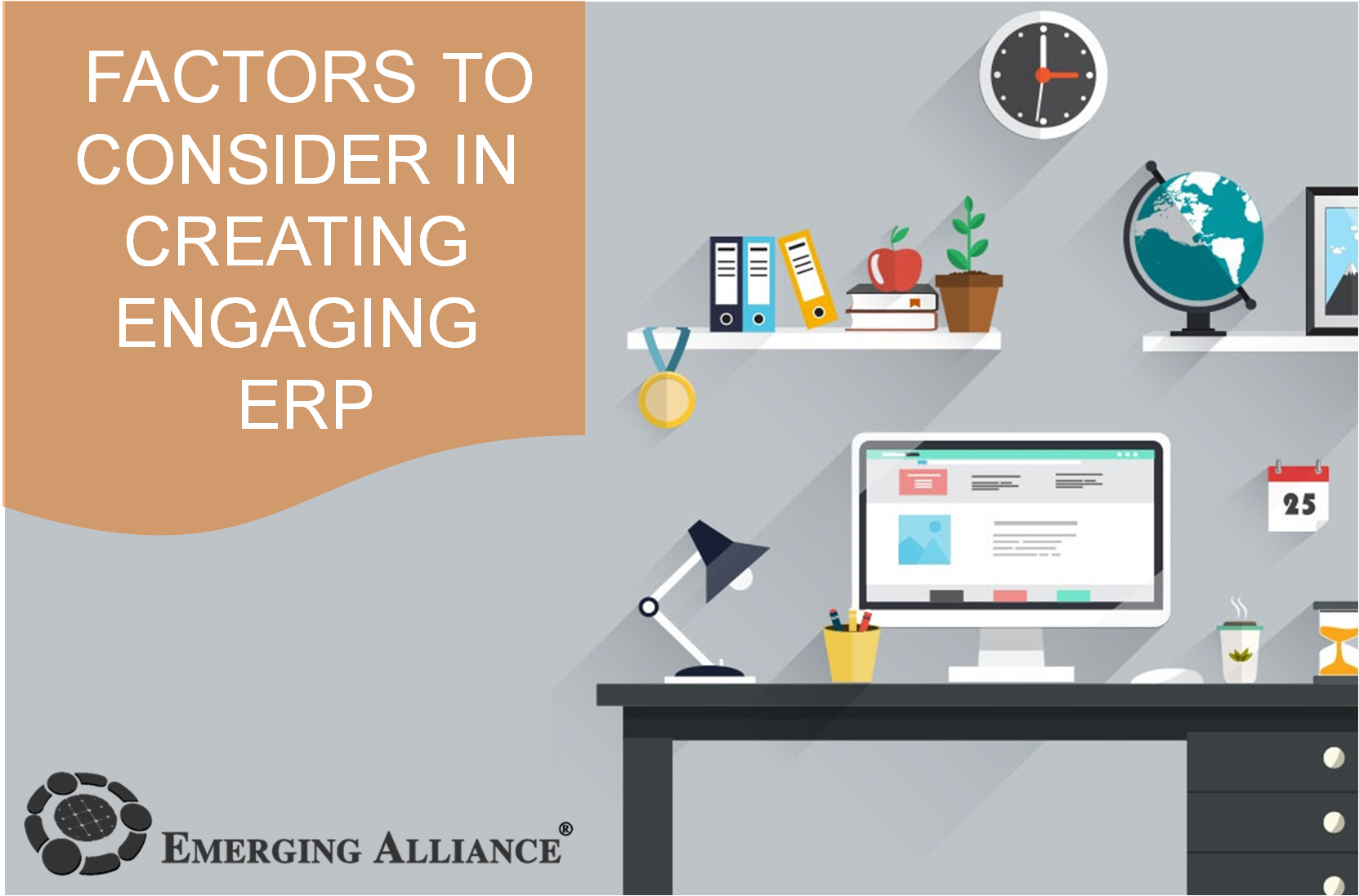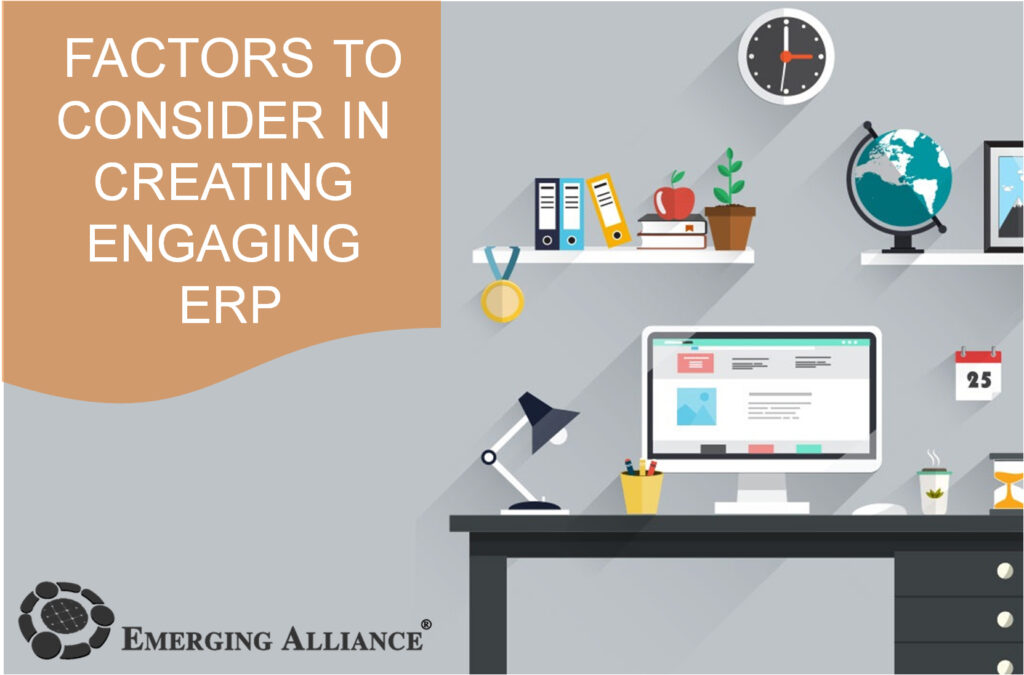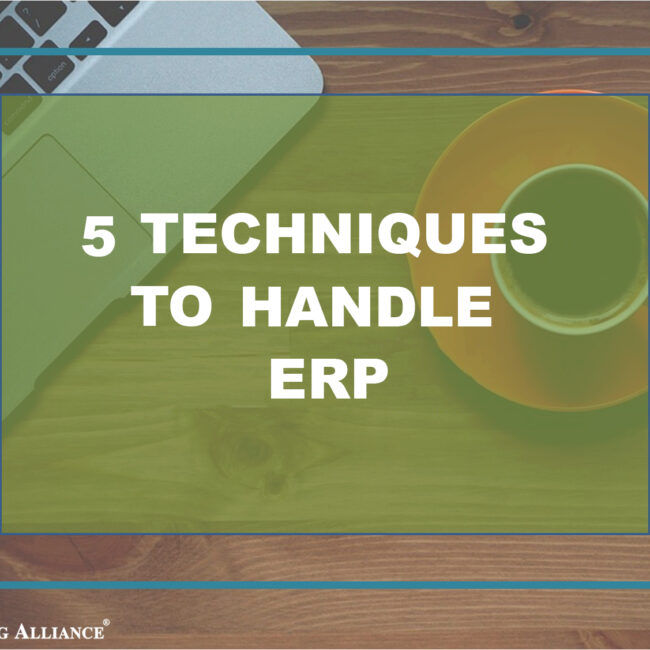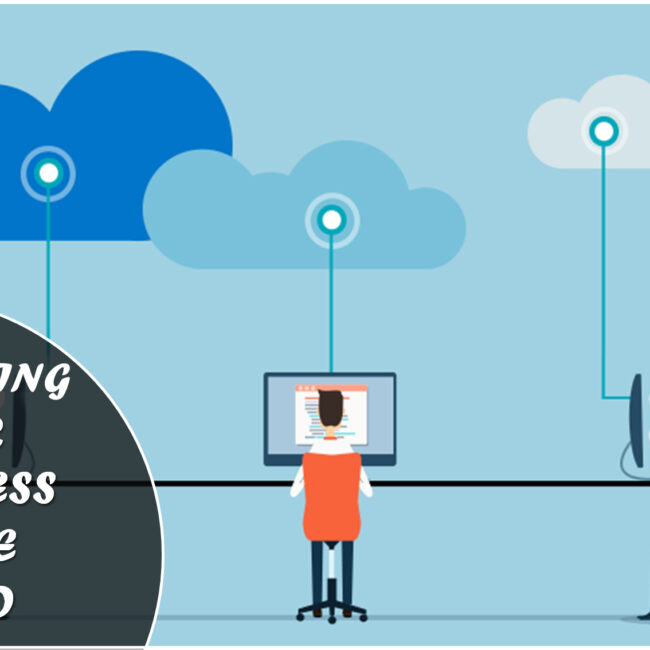
FACTORS TO CONSIDER IN CREATING ENGAGING ERP

ERP TRAINING SCENARIOS:
1. SET e-LEARNING OBJECTIVES
In ERP end-users training, the end objective that end-users must attain should be clearly defined right at the outset. Communicate the objective of the scenario right in the beginning so that end-users do not wonder why they are going through that scenario.
2. DEFINE USER ROLES
Various roles in ERP system should be clearly defined using user stories. Scenarios must incorporate user stories and the tasks they need to accomplish within the system
3. UNIQUE END-USER TASKS
There is a flow of user tasks within an ERP system such that each user works in the context of his/her role and can only perform tasks permissible for his/her role.
4. CONFLICT AND CHANGE MANAGEMENT
Strategic, deliberate, and planned communications, and case studies showcasing and promoting the value and benefits of the proposed ERP, will go a long way in resolving conflicts and getting buy-in from stakeholders and end-users, and better adoption of the ERP.
5. SEQUENTIAL LEARNING
Take your learners through their own story the role they have to play within the ERP. A clear workflow will ensure that end-users are not lost in the process.
Approaching ERP end-user training with these five elements in mind will help you create engaging, meaningful, and effective training
Get started today.
Visit: www.emerging-alliance.com







